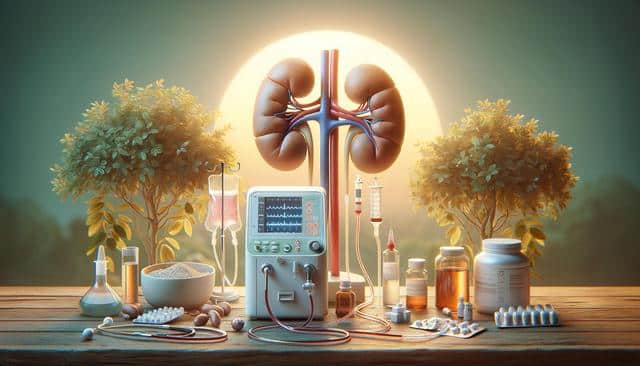Understanding the Importance of Diet in Kidney Disease Treatment
Managing kidney disease, especially at stages like Chronic Kidney Disease Stage 3, requires a comprehensive approach where food and nutrition play a pivotal role. An appropriate diet tailored to individual needs can significantly impact the progression of the disease, making it a cornerstone of Kidney Treatment. It’s crucial to remember that each person’s condition might differ, necessitating personalized dietary consultations with healthcare providers. By focusing on the right foods, you can help reduce the burden on your kidneys, thus enhancing your overall well-being.
Key Nutritional Considerations for Kidney Health
When addressing diet for renal failure, it is essential to understand which nutrients require particular attention. Patients with kidney disease need to manage their intake of certain electrolytes and minerals to prevent complications. Here are key elements to consider:
- Protein: While protein is necessary for muscle health, excessive intake can strain the kidneys. It’s recommended for those at Stage 3 Kidney Disease to moderate protein consumption under the guidance of a dietitian.
- Sodium: High sodium can increase blood pressure and exacerbate kidney problems. Opt for low-sodium options and avoid processed foods.
- Potassium and Phosphorus: Both minerals can accumulate in the body when kidneys are not functioning properly. Foods like bananas and dairy should be consumed in moderation.
By understanding these nutritional aspects, patients can make informed choices that align with their Kidney Disease Treatment plans.
Incorporating Food and Nutrition into Daily Life
Adopting a kidney-friendly diet doesn’t mean sacrificing flavor or enjoyment in meals. By focusing on Natural Healing through food, patients can explore a variety of delicious options that support kidney health. Here are some tips to incorporate into daily life:
- Choose fresh fruits and vegetables that are low in potassium.
- Opt for whole grains that are lower in phosphorus.
- Experiment with herbs and spices instead of salt for seasoning.
By being creative and mindful, you can enjoy a fulfilling diet that complements your kidney treatment goals.
The Role of Hydration in Kidney Health
Proper hydration is another key component of managing kidney health. For patients with renal failure, drinking the right amount of water can help maintain balance without overburdening the kidneys. Consult with healthcare providers to determine the optimal fluid intake, as it can vary based on individual health conditions and treatment for Kidney Disease.
It’s also advisable to monitor the consumption of beverages that may contain high levels of sugar or caffeine, as these can affect overall health and kidney function.
Maintaining a Balanced Lifestyle
In addition to a kidney-friendly diet, maintaining an active and balanced lifestyle is essential for overall health and well-being. Regular physical activity, stress management, and adherence to medical advice are vital components of a comprehensive Kidney Disease Treatment plan.
Patients are encouraged to engage in activities they enjoy, which can improve both physical and mental health. Working closely with healthcare providers ensures that all aspects of lifestyle management are aligned with the goal of slowing the progression of kidney disease.
Conclusion
In conclusion, navigating the complexities of diet and lifestyle for those with renal failure requires dedication and informed choices. By emphasizing Food and Nutrition, understanding the specifics of your condition such as Stage 3 Kidney Disease, and integrating Natural Healing practices, you can take proactive steps toward maintaining healthier kidneys. Remember to work closely with healthcare professionals to tailor a plan that best suits your unique needs and supports your journey toward improved kidney health.
